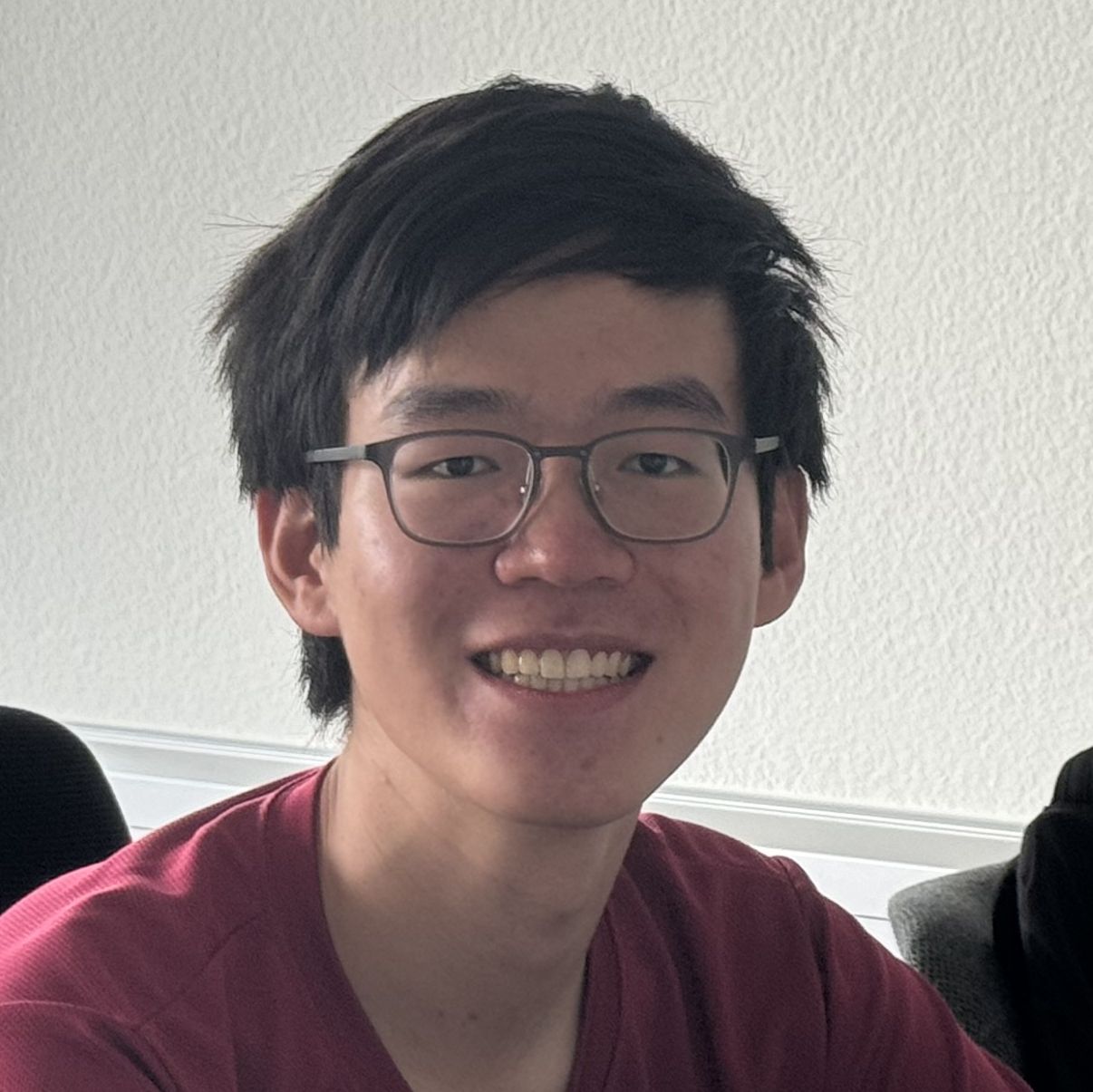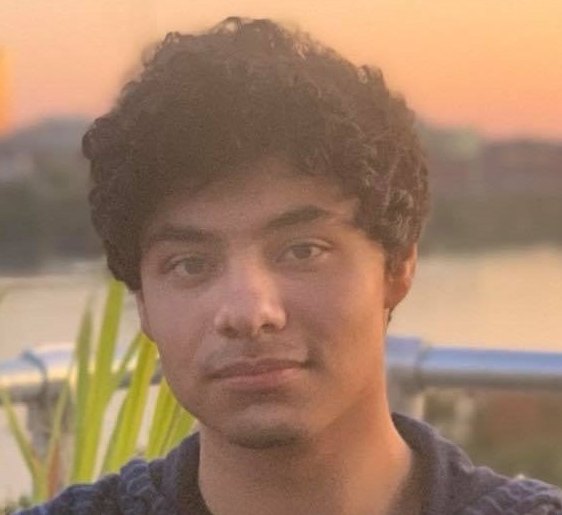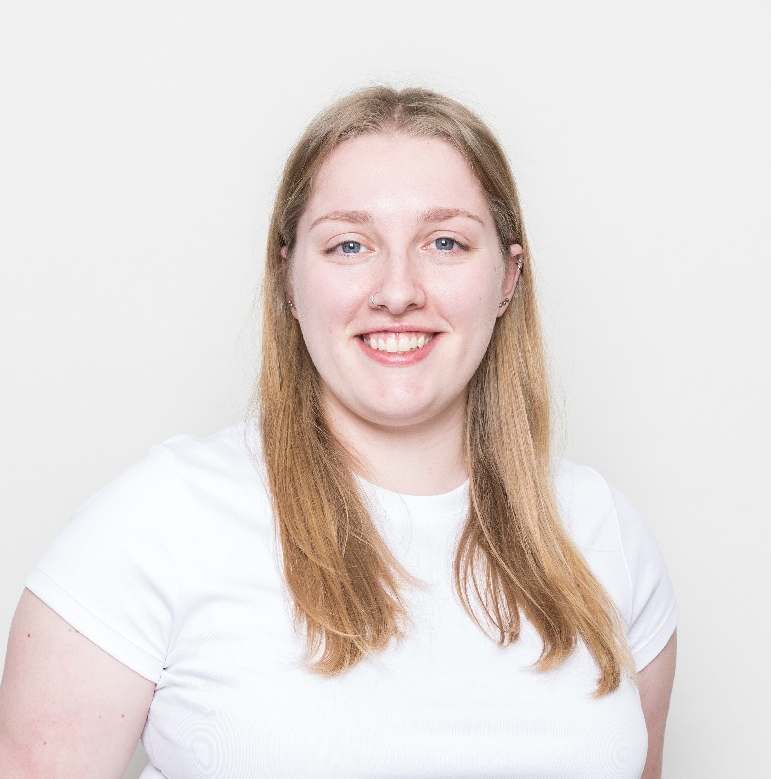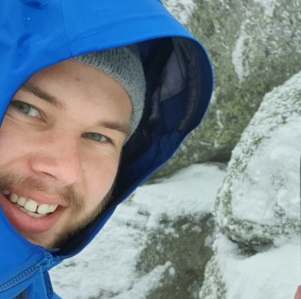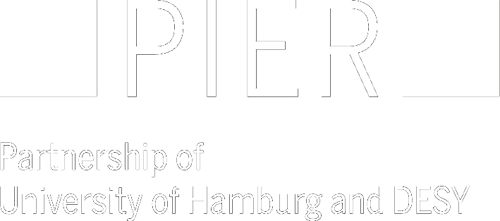"I’ve learned so much about math, physics, and programming over the summer."
Sophie Vulpe is studying mathematics and physics at the Massachusetts Institute of Technology (MIT). She just finished a summer internship in the Controlled Molecular Imaging group led by Professor Jochen Küpper at CFEL/DESY, where she worked with the theory team on solving the Schroedinger equation for molecular systems using normalizing flows. Her stay was funded by the Cluster of Excellence "CUI: Advanced Imaging of Matter". In an interview with us, she talked about her internship experience.
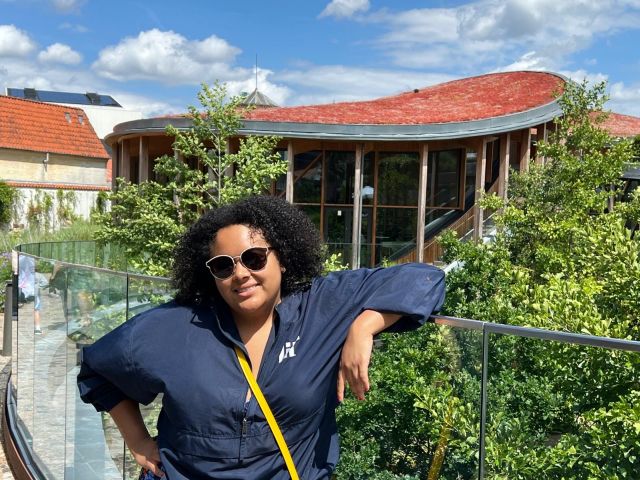
Sophie, what made you choose Hamburg as a destination for your internship? What did you find here – regarding your scientific interests – that you could not find in other places?
I was ecstatic to learn that MIT had a relationship with UHH and that UHH was offering physics internships for MIT students. It seemed like the perfect opportunity to expand my physical horizons (pun intended) and live in a country with a rich history and scientific ecosystem. I’ve always felt connected to Germany because my godparents live in the south of the country and my dad speaks the language, so I wanted to deepen this connection by working here for a summer.
There are few places in the world like DESY, and I’m so glad that I get to work here this summer! I love working at an institution with many different research fields, world-class instruments, and an international team of scientists. I’m a tiny part of this ecosystem, but I feel tremendously proud of all of DESY’s accomplishments.
What kind of research are you working on in your research group here in Hamburg?
I would characterize my research as theoretical quantum dynamics. The theory team’s current goal is to solve the Schroedinger equation for several molecular systems, which will give us insight into their energy spectra and evolution in space and time. One way to do this is by taking the known solutions for a similar system, like a quantum harmonic oscillator, and then applying a non-linear transformation to those solutions to yield the solutions to the target system. We find the correct non-linear transformation by considering physical and numerical constraints and optimizing the parameters in a neural network.
Over the course of two months, I’ve worked on two projects. The first used sensitivity analysis to identify the most important variables in the solution set of a quantum harmonic oscillator and the solution set of an H2S molecule. The second project concerns computing the Hamiltonian (an operator that can “read out” the total energy of a quantum system through the time-independent Schroedinger equation) of two different systems in order to determine how similar they are.
What, in your view, is the biggest difference between UHH/DESY and MIT? Do you feel, for example, that there are differences between Germany and the U.S. regarding lab or research group culture?
I primarily work at DESY, so I don’t have a good sense of the UHH research environment. DESY’s environment is productive yet laidback—I wish we had more of the “laidback” aspect at MIT! I’ve certainly appreciated the work-life boundaries and daily flexibility. In truth, I prefer the German scientific working environment more than the U.S. one for these reasons.
Have you had a chance to get to know Hamburg and its surroundings a little bit? What are your favorite places or activities in Hamburg?
Yes! I’m living in Osdorf over the summer and enjoy the suburban atmosphere and abundance of nature. I’ve gone on some weekend trips with friends and family, including to Copenhagen, Berlin, Luebeck, and Schwerin. In Hamburg, I would certainly recommend visiting Planten un Blomen, the Kunsthalle, Chocoversum, and the Fischmarkt. The Dom reminds me of state fairs back home, and has even better food!
In what ways do you feel this internship has contributed to your academic and/or personal growth?
This internship has certainly contributed to my personal growth, as it is my first time living alone (in a new country no less!) I’ve learned how to take care of myself and my apartment, navigate public transportation, and deal with unfamiliar surroundings. Overall, it’s been a very productive summer both personally and academically.
I’ve learned so much about math, physics, and programming over the summer. Both of my projects were well-suited for me as a math and physics major, as they utilized tools typically used in math to analyze physical phenomena. Through much trial and error, I’ve learned about many different aspects of programming and machine learning. Moreover, I’ve become more comfortable asking questions, contributing to team discussions, and admitting that I need help.
How do you think this experience will influence your future career or academic pursuits?
I would like to pursue a PhD in physics or math. This experience has taught me that I want to work in an interdisciplinary environment and perhaps pursue more quantum research in the future.
Would you consider coming back to Hamburg in the future, for example as a graduate/ PhD student?
I would love to work at DESY again, or perhaps European XFEL. They’re both excellent environments with stellar equipment and interesting research directions. Most of all, though, I would come back to Hamburg because the people I met here were so lovely. All of my team members were kind and willing to entertain my questions and teach me new things; they made my research experience amazing.
Thank you very much for your time, Sophie! We wish you all the best for the rest of your studies at MIT!
